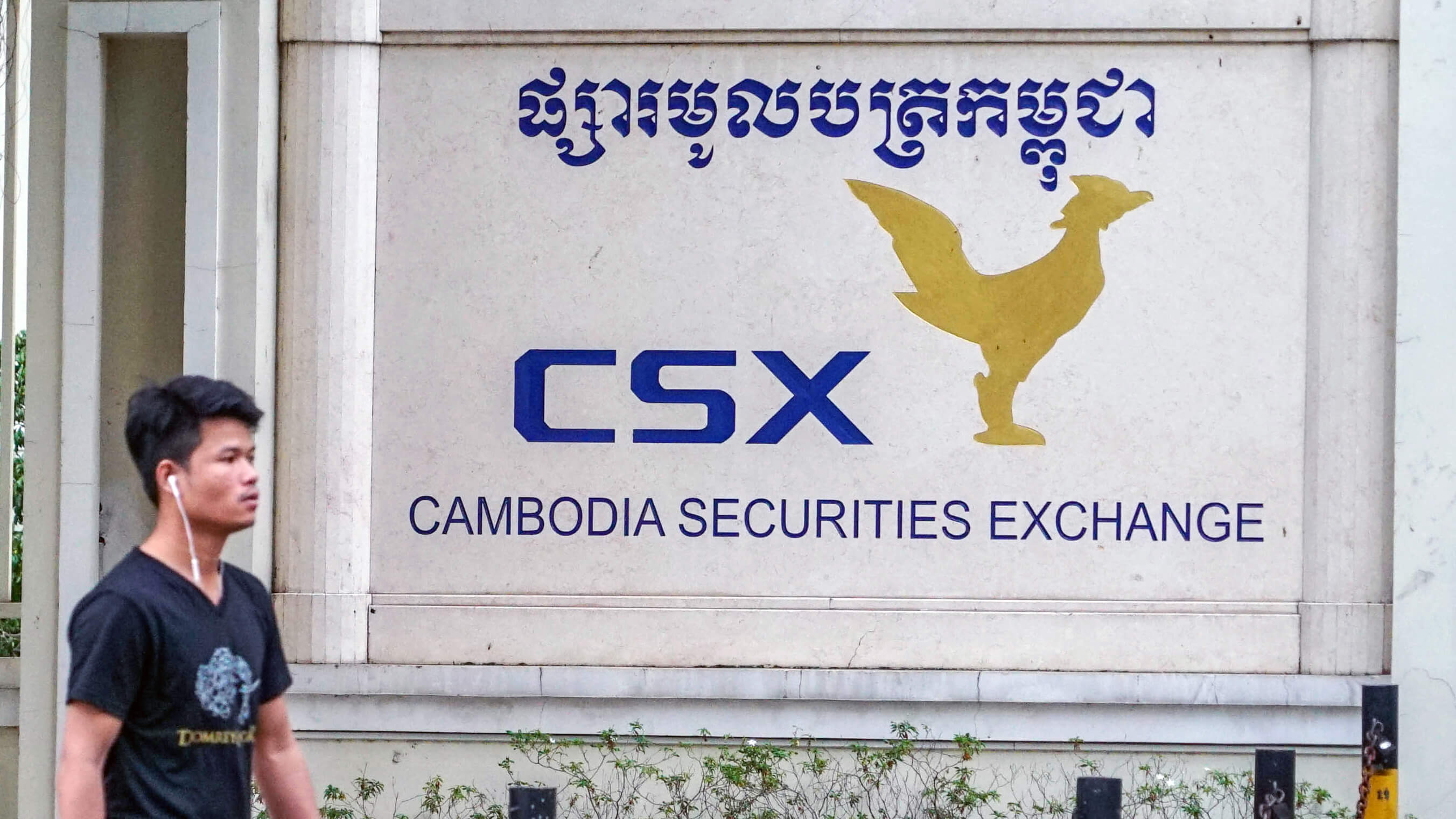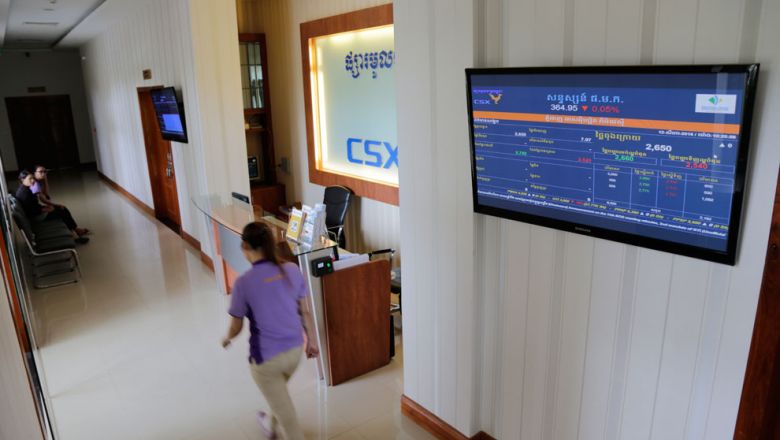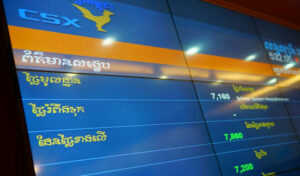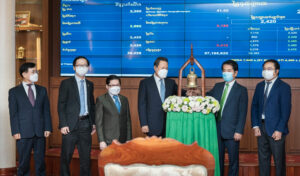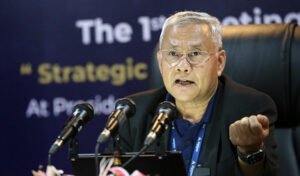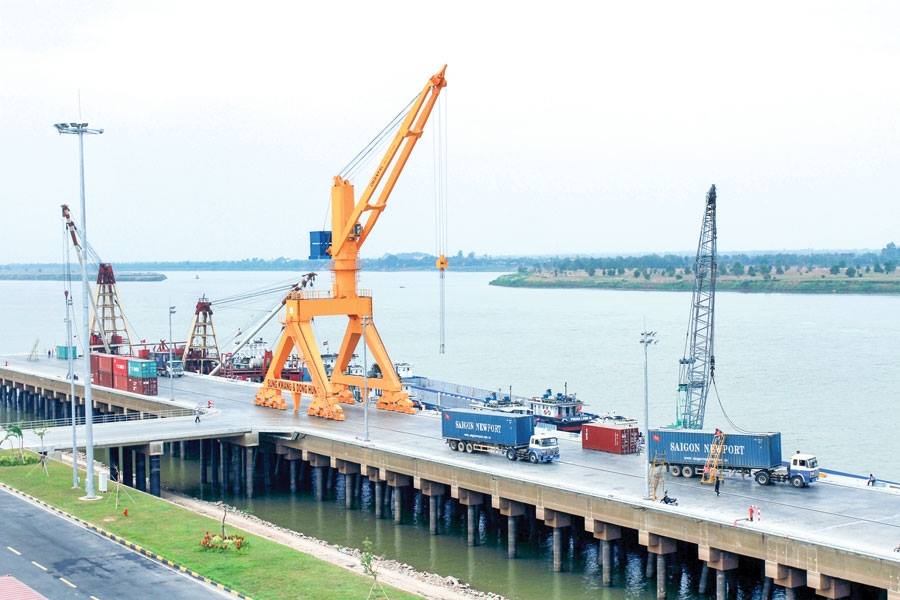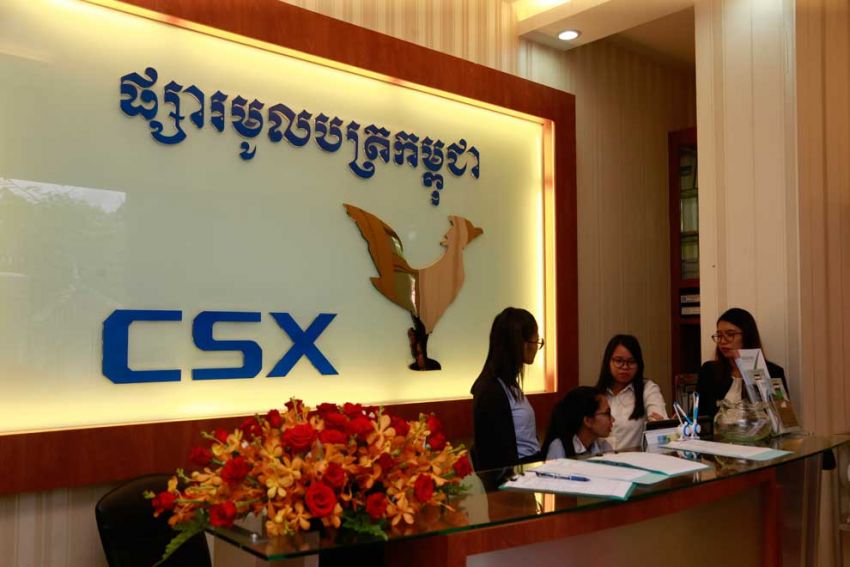Cambodia’s stock market marks a milestone amid crisis
After languishing for years with fewer than half a dozen listed companies, the Cambodia Securities Exchange is set for a “game changing” IPO by one of the country’s largest domestic banks.
Acleda, Cambodia’s biggest lender by gross loan portfolio, will become the sixth company to trade equity on the small bourse when it lists in May or early June, and only the third non state-owned firm.
The bank — which has decided to push ahead with its listing despite the COVID-19 pandemic — will be the exchange’s first financial institution and is set to triple the CSX’s market capitalization, which hovered around $600 million in April.
“It is a really big deal. We are thinking it will be a game changer in the Cambodian securities market,” Jong Weon Ha, vice-chairman and COO of CSX, told the Nikkei Asian Review at the CSX building in Phnom Penh.
“We need more equity. Many companies do not list on our exchange, so this is a big problem. This is a big commercial bank in Cambodia, it’s a big event. We will receive a lot of focus from the public and the foreign investors.”
The CSX was launched in 2011 as a joint venture split 55/45 between Cambodia’s Ministry of Economy and Finance and the Korea Exchange. The first company to list, the Phnom Penh Water Supply Authority, held its IPO in 2012, but the surrounding buzz soon fizzled, and after an initial surge, the government-owned company’s stock fell below its initial offering price, where it remains.
Since then bourse has added just four companies: the local subsidiary of a Taiwan garment manufacturer, the Phnom Penh Special Economic Zone, and the two government-owned operators of the ports in Phnom Penh and Sihanoukville.
In recent years, it has also listed corporate bonds for six companies, including microcredit providers and a transport firm. The most recent, and biggest, was earlier this month, when PRASAC Microfinance Institution raised 127.2 billion riel ($31.8 million) from three investors — Malaysia’s Hong Leong Bank, Prudential Insurance and Shinhan Bank.
But attracting companies and building liquidity in the capital market has remained a challenge. In last year’s fourth quarter, the CSX’s daily average trading value was $157,045. By comparison, the Ho Chi Minh Stock Exchange — which has 381 companies — averaged 3.93 trillion Vietnamese dong ($169.27 million) per day in the first six months of 2019.
Cambodia’s northern neighbor Laos, meanwhile, has 11 listed companies with a market capitalization of some $922 million.
A barrier for adding new local companies has been reporting requirements. In Cambodia’s opaque business environment, many family-owned businesses are unable, and some unwilling, to meet the transparency requirements needed to list.
Observers say the government needs to improve company reporting standards to close this gap.
Stephen Higgins, managing partner of investment management and advisory firm Mekong Strategic Partners, said requiring companies that want a loan of more than $1 million to provide audited financial statements would help produce a “major improvement” in reporting.
He added the cost of listing — usually more than a $1 million — was also a disincentive for local companies, while strong, audited businesses had easy access to another source of funding.
“For the small number of companies that have audited financials, and a good quality business, they typically don’t have trouble getting funding from local banks, so why give up equity to someone else?” he said.
Still, Ha remains optimistic. He said the CSX is in talks with five companies interested in listing on its main board. The exchange has also started a growth board with reduced requirements regarding profitability and shareholders equity. Ha said two companies had expressed interest in the growth board.
To attract international investors, Ha said he wants to extend dollar settlements, currently only an option with negotiated block trades, to all trading.
The government last year introduced hefty tax breaks for listed companies — including a 50% reduction on income tax for three years — and has partnered with local banks to provide cheaper loans to companies on the CSX.
“Hopefully by the end of next year, we can reach 10 listed companies,” Ha said, calling the upcoming Acleda IPO a “big moment”.
Founded in 1993 as a microcredit-providing NGO, Acleda has grown into one of Cambodia’s major commercial banks. As of last September, it had a total loan portfolio of $3.6 billion and held $4.2 billion in deposits.
Its current shareholders include a local contingent with a 51% stake, split between a trust and a staff association, and several foreign backers who hold the remaining 49%. These include Japanese firms Sumitomo Mitsui Banking Corp. and Orix, as well as COFIBRED — a subsidiary of France’s BRED bank — and three investment funds under Triodos Bank, of the Netherlands.
The bank is offering 8,751,391 new shares and up to 13,127,086 existing shares — 2% and 3%, respectively, of its total — at a price of 16,200 riel per share.
Its subscription process, finished in late April, attracted almost 2,500 investors. Han Kyung Tae, managing director of Yuanta Securities (Cambodia), the underwriter, said the IPO had been impacted by the COVID-19 pandemic, with international institutional investors unable to participate.
He said the bank looked unlikely to hit its target of raising $34.45 million, but he added there were discussions about arranging post-IPO block trade deals.
Raising money, however, is not the most important reason for listing, according to Han. He said the bank wants to provide existing shareholders — particularly staff members — a way to trade their stakes after an internally run exchange was shut down by the regulator.
As for whether the IPO will be the hoped for “game changer,” Thomas Hugger, CEO and fund manager of Asia Frontier Capital, said it will be more of a step in the right direction. The CSX needs to capitalize on Acleda’s listing to reel in more banks and companies from other growth sectors, like telecom firms., Hugger said, but added that “everybody knows” what the real game changer would be.
“I’ve told the exchange several times — the listing of NagaCorp in Cambodia,” he said.
“The infrastructure is there, but the gordian knot has to be cut, and it needs the spark that ignites the fire for investors.”
In the meantime, Han is confident that the bank’s debut will give investors a chance to invest in a company “representative of the Cambodian economy.” Nikkei Asia

